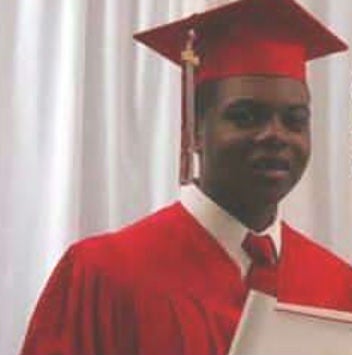
The white police officer who murdered 17-year-old Laquan McDonald has been released three years early.
Jason Van Dyke, who was sentenced to six years and nine months in prison in 2019 for the 2014 fatal shooting of the Black teenager, has served about half his time.
News of his release on Tuesday angered civil rights unions and campaigners – many of whom had called for federal charges to be brought against the police officer for the Chicago Police Department (CPD).
His arrest and sentencing was a hallmark case that resulted in the departures of the police force’s superintendent and the city’s mayor, while a justice department prove found CPD to have used excessive force against minorities.
During the fatal encounter in 2014, Van Dyke was seen in footage shooting the teenager 16 times despite Laquan being on the ground.
It was mong the first incidents involving the use of video to show the wrongdoings of a member of law enforcement against a Black American, and not dissimilar to the death of George Floyd who was shot by a police officer in Minneapolis in 2020.
Van Dyke was later convicted of second-degree murder but not for all 16 counts of aggravated battery that would have extended his prison sentence indefinitely, and was released for good behaviour by the state of Illinois this week.

In a letter to US attorney general Merrick Garland, the head of the nation’s biggest civil right’s union said “the egregious nature” of Van Dyke’s crimes meant “the NAACP believes that at a minimum, the murderous officer should be charged with a federal civil rights violation”.
NCAAP president Derrick Johnson added:“Throughout our 113-year history, the NAACP has advocated for a fair and equitable justice system that holds those fully accountable for their actions.
“We have seen unfair and inequitable favour given to law enforcement officers who unjustly take the lives of members of the Black community and have fought fervently in opposition to such favour.”
While Illinois lawmakers have supported those calls for federal charges to be brought against Van Dyke, a relative of Laquan told reporters he was against doing so. “If you set this precedent of reconvicting people because you don’t think he got enough time, then hundreds of thousands of Black men in Illinois alone could be harmed,” said the teenager’s great-uncle the Rev Marvin Hunter
“They will use this case as a way to keep them incarcerated. This is a back door to perpetuate slavery. We should be very careful of this kind of precedent.”
Additional reporting by Associated Press.







